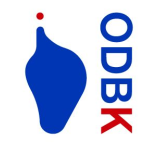Museum für Moderne Kunst, Frankfurt
 The Museum für Moderne Kunst (English: Museum of Modern Art), or short MMK, in Frankfurt, Germany, was founded in 1981 and opened to the public June 6, 1991. The museum was designed by the Viennese architect Hans Hollein. Because of its triangular shape, it is popularly called “piece of cake”, Claes Oldenburg artistically has expressed in a work.
The Museum für Moderne Kunst (English: Museum of Modern Art), or short MMK, in Frankfurt, Germany, was founded in 1981 and opened to the public June 6, 1991. The museum was designed by the Viennese architect Hans Hollein. Because of its triangular shape, it is popularly called “piece of cake”, Claes Oldenburg artistically has expressed in a work.
The newest of Frankfurt’s museums was founded in 1981[1]. The idea to set up a museum for modern art in Frankfurt came from Peter Iden, an influential theatre and art critic at the Frankfurter Rundschau and founding director of the museum (1978-1987). With the Mayor Walter Wallmann (CDU) and the Head of the Cultural department Hilmar Hoffmann (SPD) Iden found political advocates for his project. In 1989, the Swiss art historian and curator Jean-Christophe Ammann moved from the Kunsthalle Basel to Frankfurt am Main and opened the new Museum für Moderne Kunst (MMK) Frankfurt am Main there on June 6, 1991. With a new exhibition model, the Change of Scene, which took place a total of 20 times with the help of private sponsors (Change of Scene I, 1992 until Change of Scene XX, 2001-02), the new museum gained international renown. At the change of scene exhibitions, the inventory of the museum was rearranged every six months and enriched with new additions, loans and special exhibitions.
In 1983, Hollein won the competition for the Museum für Moderne Kunst; three years earlier, his proposal for the city’s Museum für angewandte Kunst had finished a close second behind Richard Meier’s prize-winning design. The ground-breaking was delayed until 1987, and the new museum was eventually built at a cost of about $38 million. It opened in 1991.
The MMK Zollamt is a satellite exhibition site that belongs since 1999 to the MMK and is located in a building directly opposite the museum that once was home to the City of Frankfurt’s Main Customs Office. The building has been completely modernised and artistic positions by younger artists or “unknowns” have been presented here regularly since 2007 with the support of Jürgen Ponto-Stiftung.
